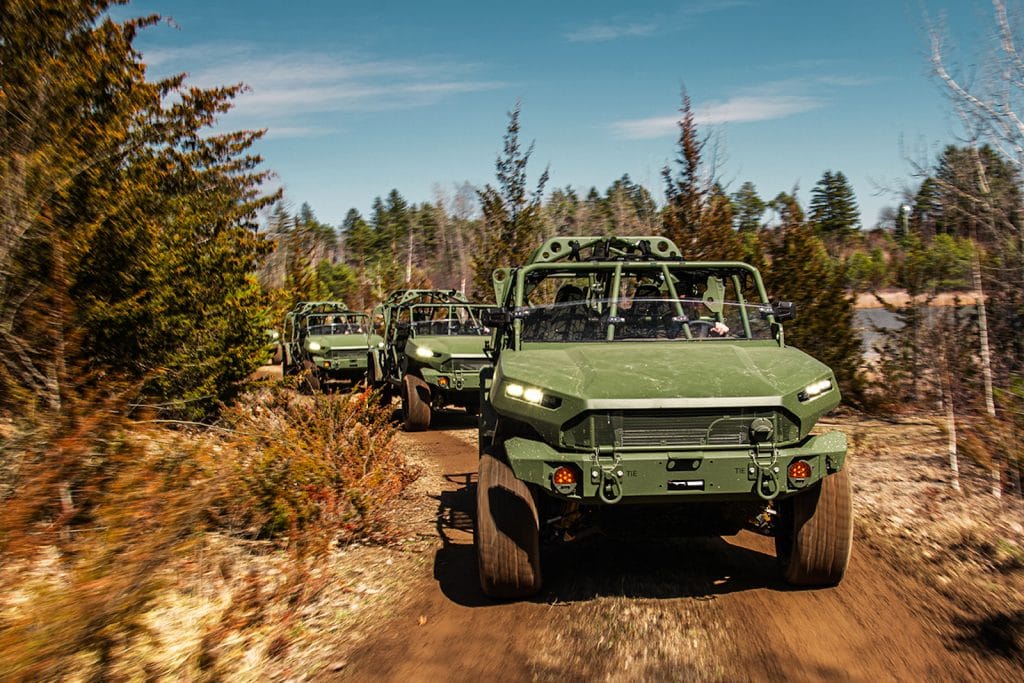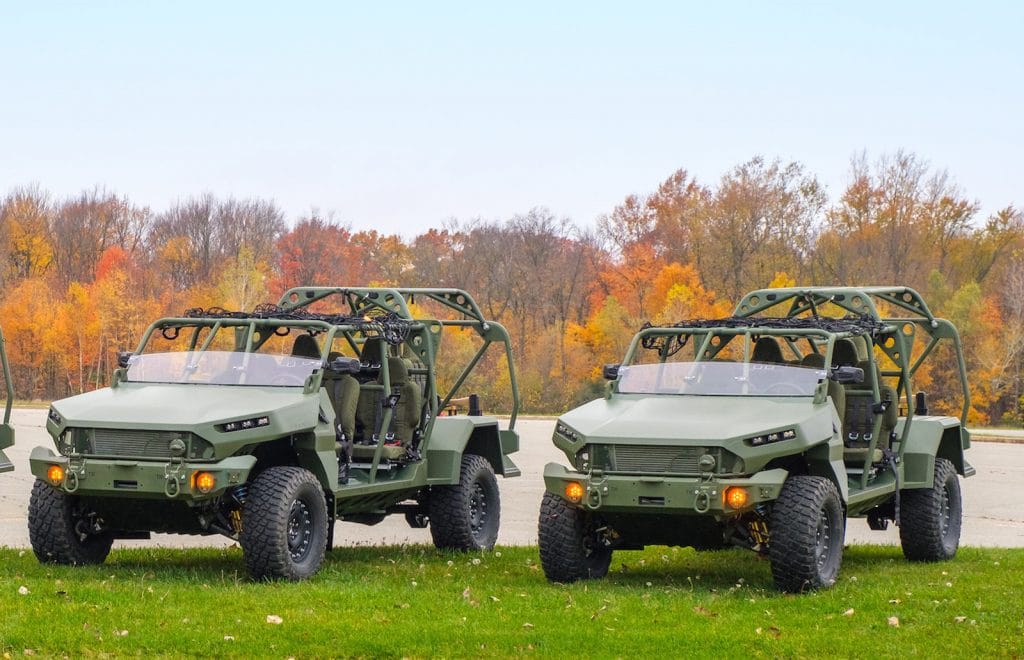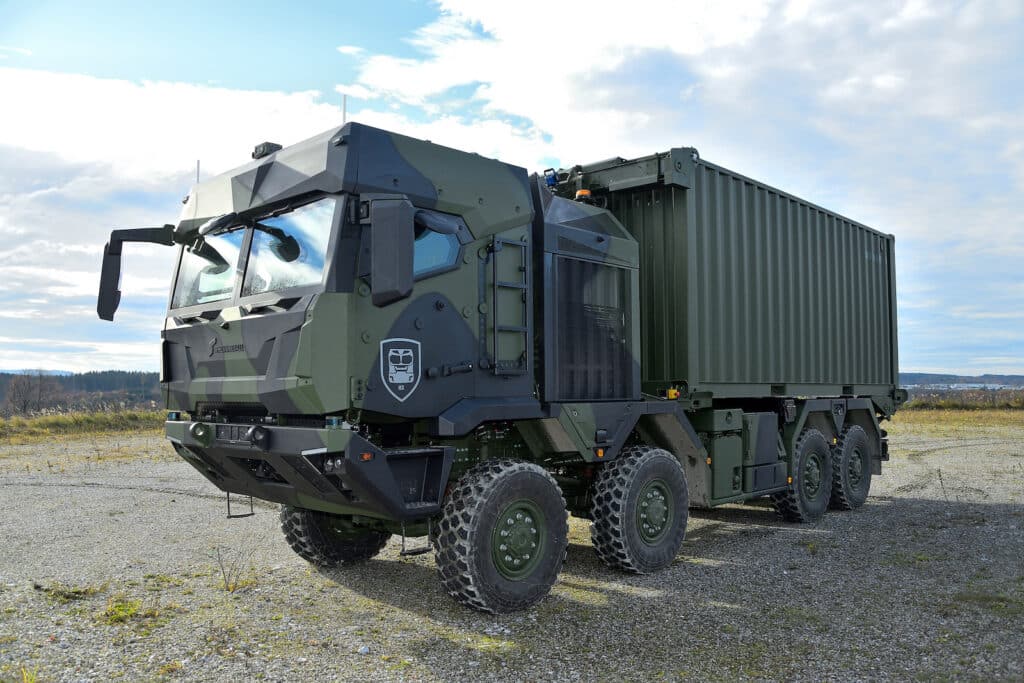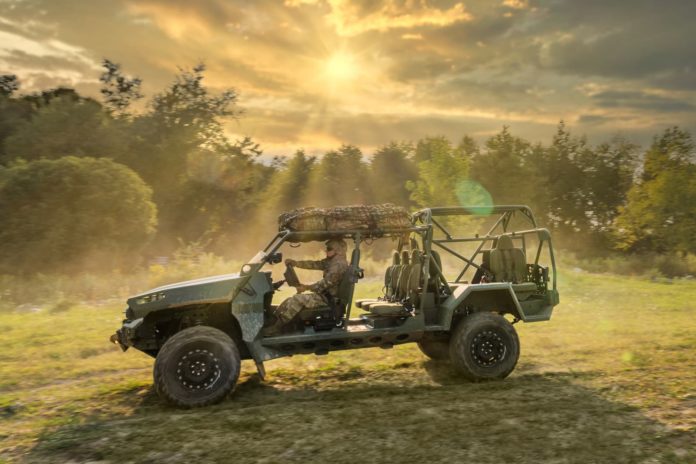The U.S. Army and GM Defense are moving ahead with production of a specialized infantry vehicle based off the Chevrolet Colorado ZR2.
The Army provided a “full-rate production decision” for the Infantry Squad Vehicle, or ISV, developed by General Motors’ defense subsidiary. GM Defense won the initial $214.3 million contract in 2020 to develop and produce 2,065 units of the light and agile all-terrain troop carrier for Infantry Brigade Combat Teams.
The ISV is based on the Chevrolet Colorado ZR2 chassis, and it is designed to transport a nine-Soldier infantry squad and their equipment.
“I’m proud of the GM Defense team for reaching this important milestone in the Infantry Squad Vehicle program,” said Steve duMont, GM Defense president. “We have delivered more than 300 vehicles to our U.S. Army customer with many already fielded to the Army’s 82nd and 101st Airborne Divisions.”
GM Defense named duMont as president in 2021, when the subsidiary opened its manufacturing plant in Concord, North Carolina. DuMont came to GM Defense from Raytheon, with prior experience at BAE Systems and Boeing.

Off-the-shelf construction
Because the ISV is based on a standard production midsize truck architecture, the military vehicle will be composed of 90% commercial-off-the-shelf parts, including some racing components from Chevrolet Performance. The ISV will have minimal bodywork and carry a roll structure that also serves as a place to mount extra gear.
Weighing in at 5,000 pounds, the expeditionary ISV is light enough to be sling loaded from a UH-60 Blackhawk helicopter and compact enough to fit inside a CH-47 Chinook helicopter for air transportability. The vehicle’s high percentage of off-the-shelf parts provides the Army flexibility in maintenance and the ability to change the vehicle to support evolving mission requirements.

“Our flexibility during the pursuit of the ISV helped us win the early stages of the contract award and has since played a pivotal role in delivering the best value solution to the U.S. Army,” said Rick Kewley, GM Defense vice president of Product Development and Advanced Engineering.
“Not only did customer feedback make the ISV better at an accelerated pace, but it also helped us bring to bear the engineering and manufacturing expertise from our parent company, General Motors, to add new capabilities while fulfilling the Army’s design and performance requirements. We remain confident in our ability to meet higher production quantities in the future.”
GM Defense noted it has already demonstrated the adaptability of the ISV by expanding the initial nine-passenger troop carrier into a family of vehicles. The GM Defense-produced ISV variants offer configurable vehicles adapted for a broad range of mission profiles, including fire support, command and control, electronic warfare, counter-unmanned aircraft systems, reconnaissance and logistics, and casualty evacuation.
GM Defense is also making heavy trucks

The ISV was the first major award for GM Defense since the subsidiary was reestablished by its parent company in 2017. However, earlier this year GM Defense and American Rheinmetall Vehicles of Sterling Heights, Michigan won a contract to produce the first phase of the U.S. Army’s Common Tactical Truck Program.
The aim of the multi-phased program is to replace the Army’s family of heavy tactical trucks with production of up to 40,000 trucks valued at up to $14 billion.
The two companies formed a strategic collaboration in 2022 to compete in the program; bringing together two world-class engineering and manufacturing giants to deliver a modern, tactical truck that enhances military capability through advanced technologies including advanced driver assistance systems (ADAS) for safety, increased off-road mobility, cybersecurity, machine learning, artificial intelligence, improved survivability and fuel efficiency, among other emerging technologies.
On the commercial side, the U.S. military has been reported to be considering the GMC Hummer EV for field use as well as the ISV. Last summer, GM Defense received a request from the U.S. Army to provide a battery-electric vehicle for analysis and demonstration and responded with the GMC Hummer EV.
“Leveraging GM’s advanced technology, this demonstration will prove to our U.S. Army customer what an all-electric supertruck can do and how the underlying technology can be leveraged for future defense needs, whether on an installation or in a tactical environment,” said duMont.

